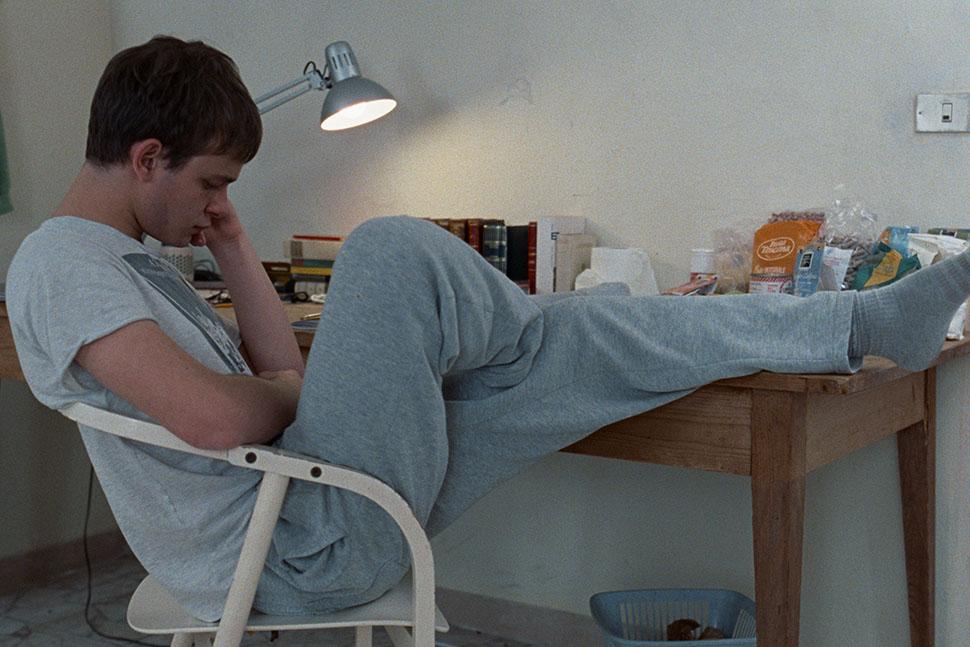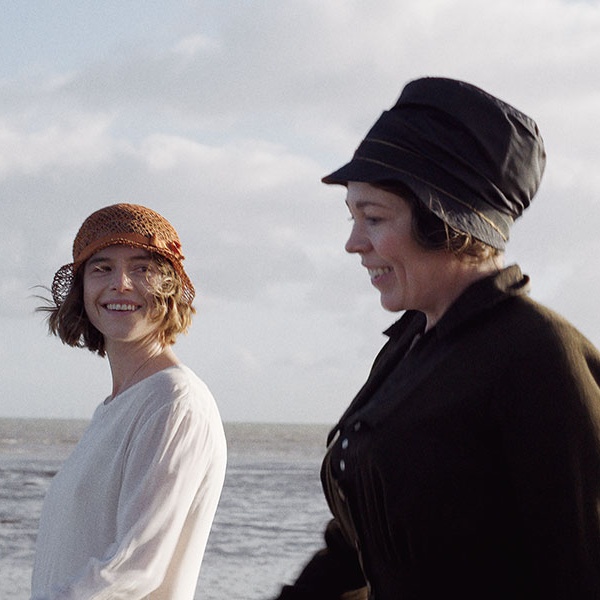First-time feature filmmaker Giovanni Tortorici throws a lot at the screen in his “Diciannove“: animated sequences, jump cuts galore, Dutch angles to spare, zippy zoom-ins, freeze frames, the whole lot of it, a showy way to tout his prodigious skills, most of them unnervingly funny and a touch out of place. That’s trick, however, one of many ways Tortorici keeps his audience off-kilter while spinning a coming-of-age tale that feels all too familiar until, wham! (points to the filmmaker for avoiding comic book-styled action words), “Diciannove” and its inscrutable protagonist finally snap into place. And while that particular “place” is much darker than this sly, slippery film initially lets on, it ultimately proves to be far more thrilling.
There’s not much that stands out about Leonardo (first-time actor Manfredi Marini, an extraordinary find), a 19-year-old (the film’s title translates to “nineteen” in Italian) Palermo resident who is about to decamp for London for a stint in business school. He’s handsome, yes, and maybe even a little funny, but he also scans as something of a blank slate, a young man looking for his place in the world, in search of meaning, adventure, all the stuff we’ve come to expect life (or movies) can offer when it comes time to come of age.
His mother is a bit of a ballbuster, the kind of woman who spends the pair’s final, pre-university moments together berating her son with endless asks about his packing list. When Leonardo cracks wise about forgetting his ID card, she nearly drives off the road, before shouting at him, “It’s dangerous to joke in a car!” Like so much else in “Diciannove,” this truism is both obvious and hilarious. It also endears us to Leonardo, this relatable little slice of life, this yelping mother, this funny bump on his way into what should be the next big step in his life.
And that next big step? Oh, it’s not in London. Almost immediately, the dank apartment building where Leonardo is reunited with his brassy big sister feels like a massive disappointment. This is where my life is going to begin? Again, we’re endeared to the kid. But as Leonardo starts to eek his way through these first “I’m an adult now!” moments, something else starts to take hold.
Mostly, Leonardo doesn’t quite feel present in his life, even — hell, perhaps especially — when he’s partaking in all the kinds of things young people should enjoy. A drunken night out in London looks wild and thrilling on the screen, but Leonardo doesn’t seem to feel any of it, going through the motions by making out with scads of young women (and briefly making eyes at a young man, an early indication of something else stirring in Leonardo’s heart). Before attending a single class, Leonardo takes to the internet in search of something seemingly random: what’s the best university to study literature in Italy? A list tells him it’s in Siena, and bam!, Leonardo cuts with London, heads off to Siena, and starts another new life, all over again.
That it’s so easy for Leonardo — both in practice and function — tickles a bit. Should this sort of shape-shifting be so simple? Settled in gorgeous Siena, Leonardo toys with being more serious, solemnly sitting on his bed and practicing different ways to announce he’s suicidal (perhaps the best example of the black humor that runs through Tortorici’s film). But none of these stilted pronouncements feel real, because Leonardo doesn’t. There’s a blankness to him, a vagueness, something undefined, something as artificial as all of Tortorici’s filmic flourishes, and it takes more than half of the film’s running time to realize why: He’s not simply a self-involved little jerk, he’s something far worse.
That Tortorici pulls this twist off is both perverse and pleasurable, and that he keeps it all feeling funny is even better. (The film is produced by Luca Guadagnino, for whom Tororici worked as a production assistant on his series “We Are Who We Are,” and it smacks of some of the filmmaker’s more amusing works.)
While Leonardo may be able to fit in alongside the people who have known him the longest — his sister, her best friend, his cousin — people who meet him now are instantly repelled or attracted, often in equal measure and at the same time. A London pal of his sister’s tries to chat him up during a daytime picnic, but something about his brusque answers puts her ill at ease, and she almost immediately stops talking to him, seemingly trying to physically shrug off the interaction. Later, in Siena, a pretty classmate will make quick eyes at Leonardo, and while she constantly attempts to rope him into her friend group’s many social outings, she soon becomes a subject of derision to Leonardo, even if he’s only deriding her silently, and to himself.
As Leonardo becomes further steeped in classic Italian literature — and the moral value of them, back when people had morals, not like this awful contemporary age — he becomes more himself. Who that person is, and his place in the world, slowly comes into frame over the course of his darkly funny spin on the coming-of-age tale. One hint: even the worst people had to grow up at some point, didn’t they?
Grade: B+
“Diciannove” premiered at the 2024 Venice Film Festival. It is currently seeking U.S. distribution.
Want to stay up to date on IndieWire’s film reviews and critical thoughts? Subscribe here to our newly launched newsletter, In Review by David Ehrlich, in which our Chief Film Critic and Head Reviews Editor rounds up the best reviews, streaming picks, and offers some new musings, all only available to subscribers.



